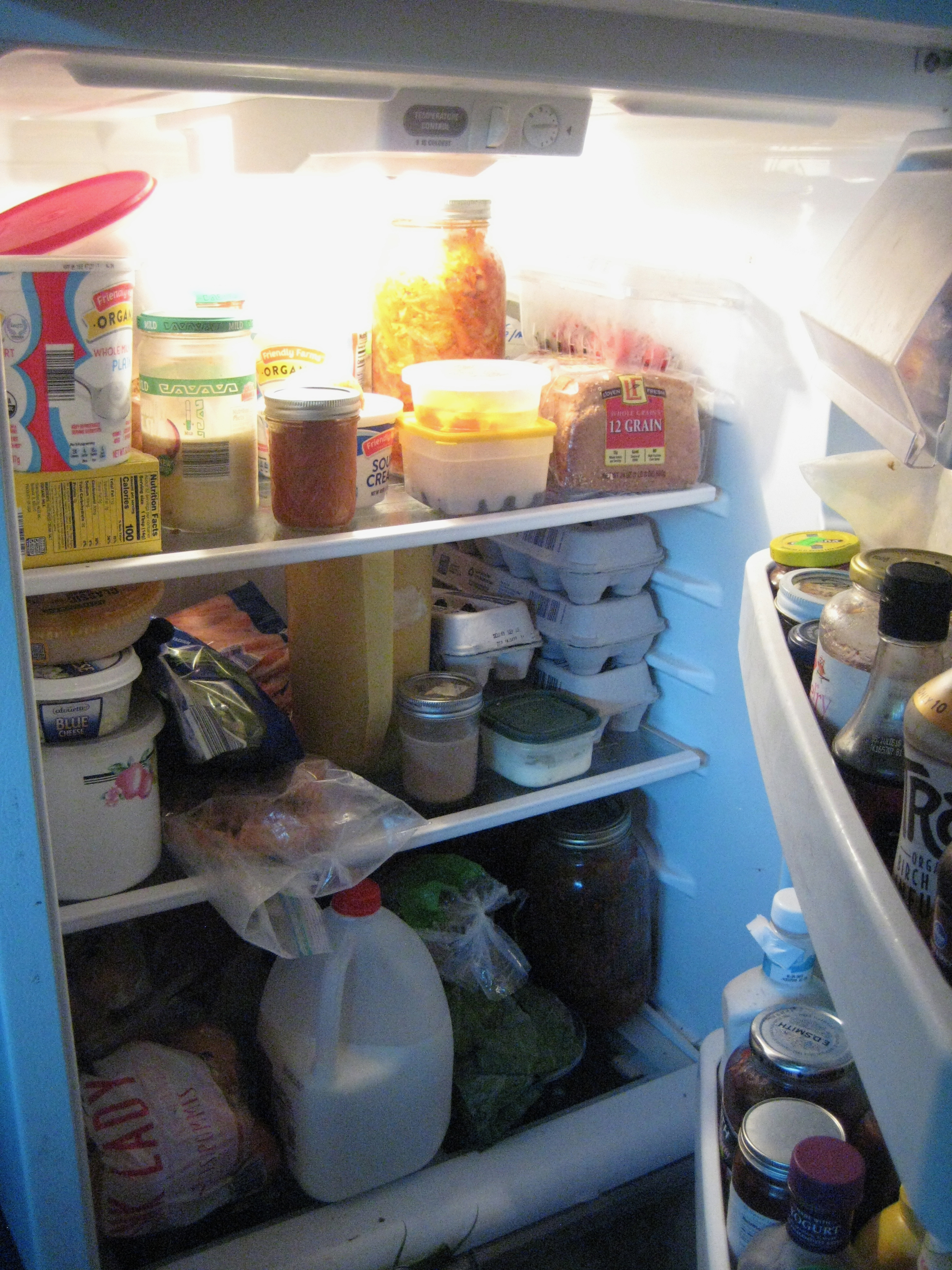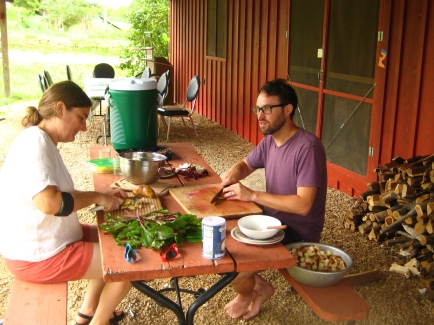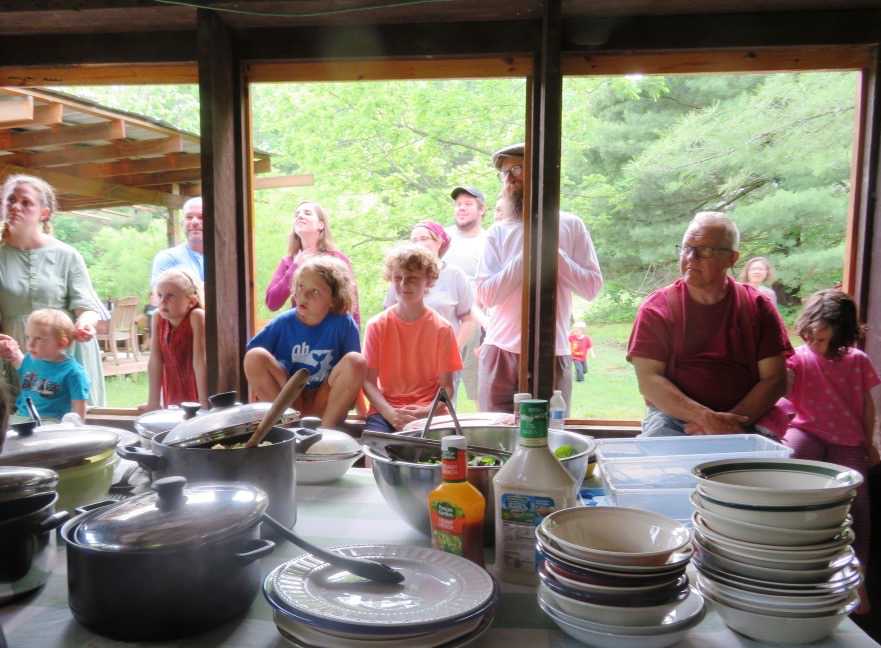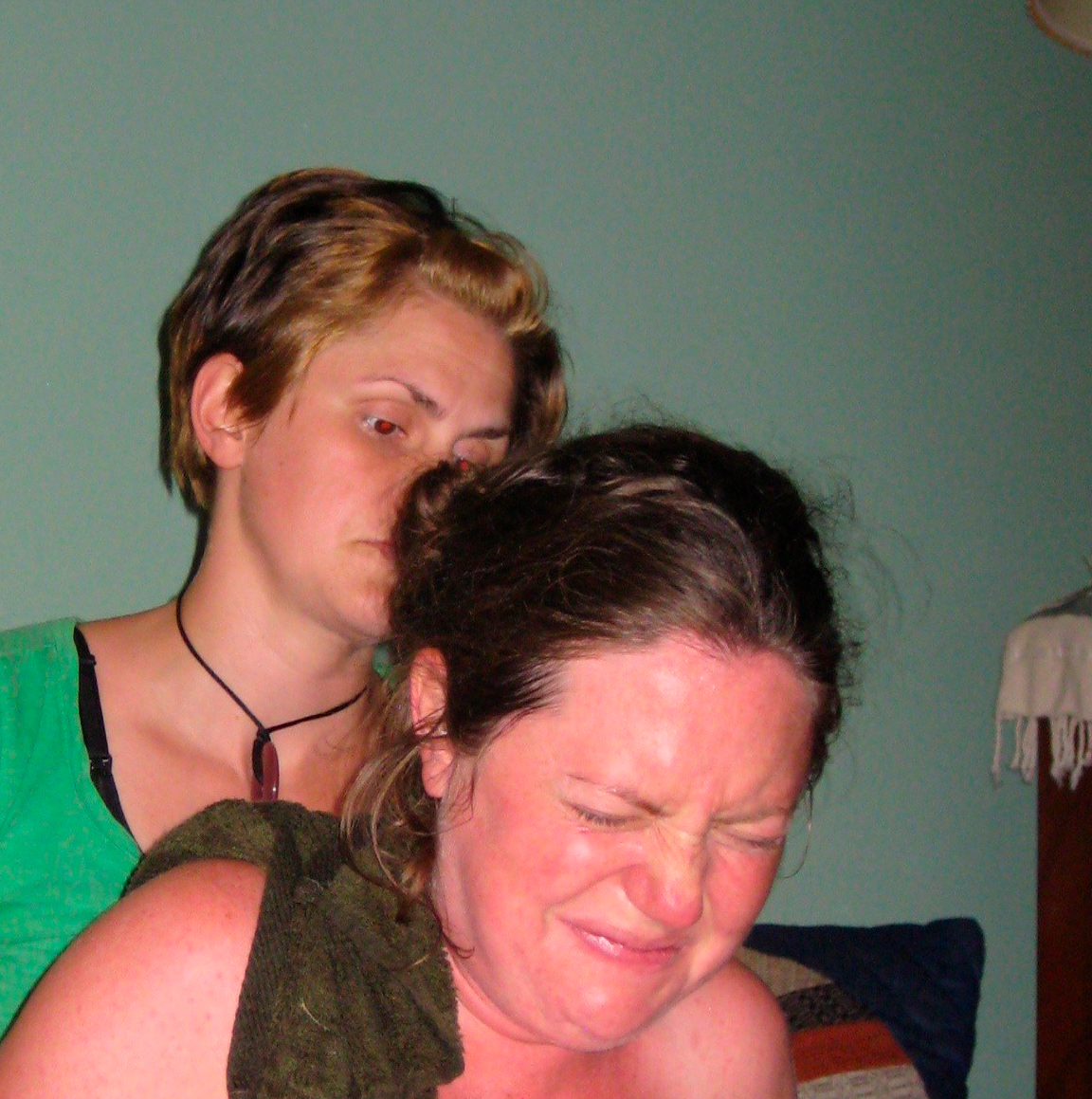“Conflict is woven into the fabric of all life; opposition is normal. Reasonable creatures disagree with each other all the time…Do not be surprised when you encounter resistance. Meet it with grace and skill.” — Frank Rivers The Way of the Owl: Succeeding with Integrity in a Conflicted World
On this journey, I frequently hear two voices in my head. One says, “Don’t wait for others. Make the decisions you want to make. Move ahead and make this thing happen!” The other says, “Slow down. Listen to the people around you. Include them wholeheartedly in the process.”
The problem with going ahead by ourselves is that we won’t have others along with us. The problem with having others along with us is that we’ll have others along with us. It’s a question of which difficulties you prefer. I’m a community-oriented person so I tend to prefer the difficulties that come from having others along with us, namely interpersonal conflict.
 Undoubtedly, the hardest part of living closely with others is dealing with conflict. The question is not will there be conflict but when will there be conflict and how can it be handled well. Most conflict is small, arising out of miscommunication or misunderstanding. Working on the small conflicts helps us grow into people who can navigate relationships with grace. Some interpersonal conflict can be damaging and cause relationships to weaken. However, if all parties involved have the willingness and humility to pursue a resolution, conflict can also bring about great growth and ultimately bring people closer together.
Undoubtedly, the hardest part of living closely with others is dealing with conflict. The question is not will there be conflict but when will there be conflict and how can it be handled well. Most conflict is small, arising out of miscommunication or misunderstanding. Working on the small conflicts helps us grow into people who can navigate relationships with grace. Some interpersonal conflict can be damaging and cause relationships to weaken. However, if all parties involved have the willingness and humility to pursue a resolution, conflict can also bring about great growth and ultimately bring people closer together.
Because conflict occurs in all relationships – whether with friends, children, spouses or siblings – it is wise to find a healthy way to address it. We had some techniques for dealing with conflict at the Bloomington Catholic Worker. We made time each week to gather and name any grievances, to confess any wrongdoing, and to reconcile with one another. When the “nip it in the bud” approach wasn’t enough, we would have a mediator facilitate a conversation between the people in conflict. We tried to take time to examine our own thoughts, feelings, and ways in which we contributed to the conflict. All these things helped to some degree but we knew that conflict would never disappear from community altogether. We could only hope to get better at handling it.
In The Way of the Owl, Rivers offers this suggestion for approaching conflict:
 “Give your opponent’s argument some place to go by acknowledging it, especially if you disagree. Instead of countering his outrageous arguments, give them some credit. Illuminate your adversary’s path with acceptance, inquiry, and even encouragement. This will disarm him, leaving him slack-jawed and flat-footed, wondering what happened to the resistance he expected.”
“Give your opponent’s argument some place to go by acknowledging it, especially if you disagree. Instead of countering his outrageous arguments, give them some credit. Illuminate your adversary’s path with acceptance, inquiry, and even encouragement. This will disarm him, leaving him slack-jawed and flat-footed, wondering what happened to the resistance he expected.”
I have been the adversary before, making my point incessantly, fueled by emotion and self-righteousness. Let’s say it’s an argument with David, my husband, about the dishes.
“You never do the dishes when you’re home with the kids,” I say when I come home from work.
“But I vacuumed and took out the trash,” he says.
“But the dishes. I can’t stand to come home to a sink full of dirty dishes,” I say.
And then suddenly, David (who is a better person than I am), from some peaceful place in his soul, manages to say, “You’re right. I didn’t wash the dishes today.”
“But…” is on the tip of my tongue ready to be launched, but now I can’t launch it. What did he just say? I have nothing to argue about anymore. Because he agreed with me, I suddenly feel like a jerk. I have no reason to pick on a husband who vacuumed and took out the trash all the while watching two energetic kids!
It’s incredibly hard to acknowledge an adversary’s point and to really get on their side, even if that adversary is your spouse. But the result of doing so could mean more than an end to the argument but also a substantial change in your relationship. Imagine doing this with someone at work, in your family, or at church.
Imagine doing what River’s suggests here: “You must get inside his skin, feel his sensations, think his thoughts, and dream his dreams. In this way, a curious bond develops; you may actually begin to identify with your opponent and his predicament…Severe enmity can lead to bonding, even friendship and alliance.”
What is required to do this is a putting aside of one’s own ego, one’s own argument. It is another version of the Christian teaching to love your enemy. That is the hardest work that is done in community, the work that has much to teach us about ourselves and others. Had I put myself in David’s shoes, I would have come home from work full of praise and gratitude to him for caring for our kids all day. And then I would have happily started in on the dishes.
Another approach to conflict resolution is offered by Thich Nhat Han. His community, Plum Village, uses a Peace Treaty to handle conflict. The Peace Treaty is signed by members of the community after much discussion and contemplation. It outlines the steps that both people in a conflict should take once a conflict has been named. It includes many reflective, meditative practices that essentially boil down to finding humility for our part in a conflict and compassion for the other person. We never used this Peace Treaty at the BCW, but I know it will be necessary to have a conflict resolution process that is well-articulated and agreed upon by all members of the community.
I learn a lot about myself and other people through navigating conflict. Conflict is always painful – sometimes the pain proves beneficial and sometimes it just hurts. I am not looking forward to future conflicts that will arise out of the creation of Common Home Farm, but I am preparing for them the best I can.





 begin, which is to say, how to leave.
begin, which is to say, how to leave.